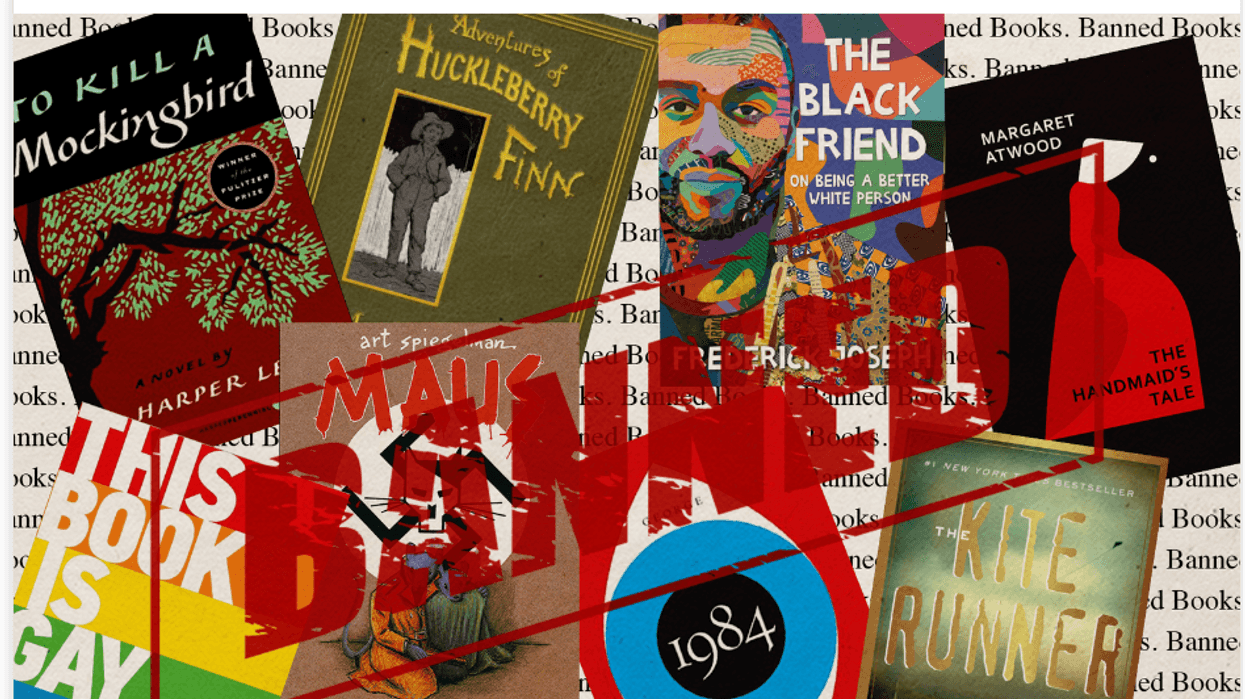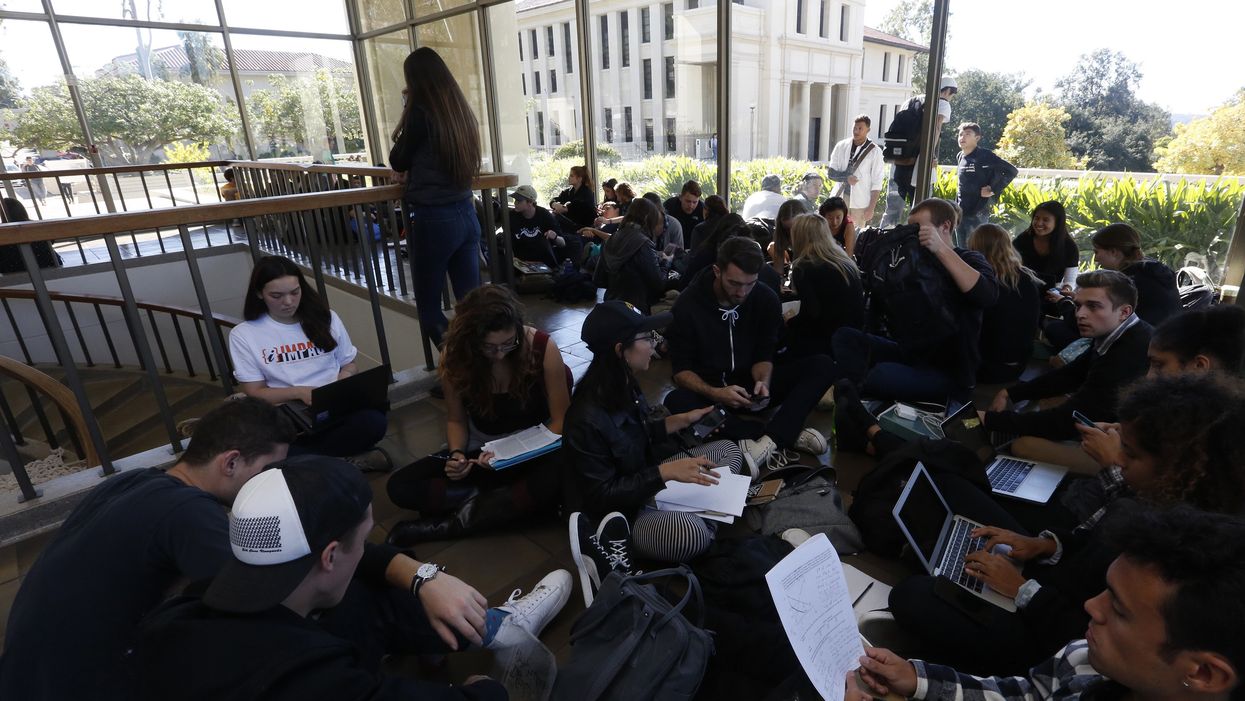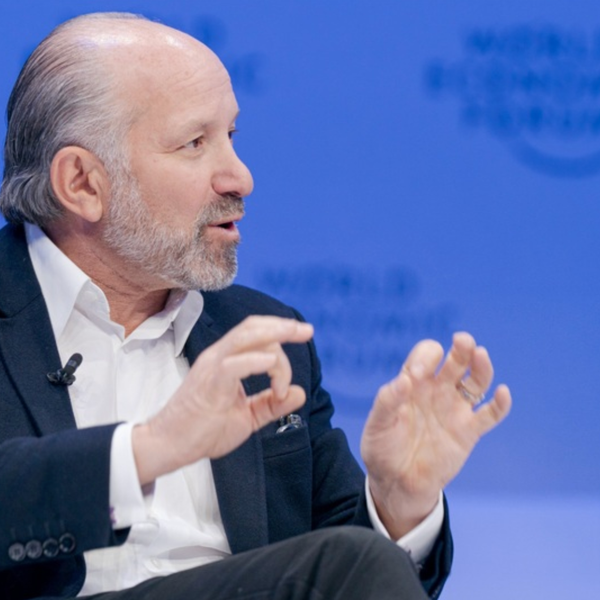Iowa's Little Tyrants Have Actually Banned Orwell's "1984," Because Sex
Show me a book-banner, and I’ll show you a would-be tyrant. The same applies to individuals who seek to promote mandatory speech: What you’re forbidden to read; what you must say. Almost always, such efforts involve everybody’s favorite pastime: judging the intimate lives of others.
Here in Arkansas, Republican Gov. Sarah Huckabee Sanders recently went to war against what she described as “woke nonsense” supposedly belittling real women like herself, a mother of three. Arguing that “the left” has “decided ‘woman’ is a dirty word” she issued an executive order—in Iran they’d call it a fatwa—banishing from public documents a bunch of words nobody’s ever seen there.
Rather than “chestfeeding,” Sanders decreed, public documents must use “breastfeeding.” Instead of, “birthing person,” they should say “birth mom.” And so on. During her press conference, the governor became annoyed with a reporter who asked where she’d found the forbidden terms. She cited a Health Department statement warning “pregnant people” to avoid contaminated water.
Good advice, most would think.
Skeptics wondered if Sanders might be trying to distract voters from a ludicrous controversy involving the state’s purchase of a $19,000 lectern from her own PR consultants, not previously known to sell office furniture. Some have noticed that the cost—several times what a similar item sells for on Amazon—closely matches the round-trip, business class airfare from Little Rock to Paris, where the same consultants recently enjoyed the governor’s hospitality during a French air show.
But nobody knows, and the absurd controversy, also involving suspect emails and doctored invoices, goes on even as Gov. Sanders safeguards Arkansas women from “woke” jargon nobody’s ever heard.
Up in Iowa, meanwhile, that state’s aggressively “Christian” governor has signed a bill requiring public schools to remove books depicting a “sex act”—vague language that, as reported by Greg Sargent in the Washington Post, has sent librarians around the state into a fear-based frenzy of book banning.
A short list of classic novels removed from school libraries around Iowa includes Ulysses by James Joyce, The Handmaid’s Tale by Margaret Atwood, Brave New World by Aldous Huxley, Slaughterhouse-Five by Kurt Vonnegut, and Forrest Gump by Winston Groom.
But the one that really caught my eye was George Orwell’s 1984, the anti-totalitarian classic and the most politically influential novel of the 20th century—unless it was Orwell’s Animal Farm—and one that until quite recently was required reading on high school curricula. I’d go so far as to say that an enemy of that book is an enemy of democracy.
But yes, Orwell believed that the thing that would most horrify readers about Big Brother’s tyrannical government was its intrusion into peoples’ intimate relations. So 1984 tells the story of a doomed love affair between the protagonist, Winston Smith, a re-write man in the Ministry of Truth who alters historical documents to agree with party dogma, and Julia, a co-worker who wears the sash of the “Junior Anti-Sex League” to disguise her secret life.
Their clandestine meeting in the woods outside London is described in terms suitable for a family newspaper: “Their embrace had been a battle, the climax a victory,” Orwell wrote. “It was a blow struck against the Party. It was a political act.”
Alas, there’s a video screen in their slum hideaway so the lovers get arrested and tortured for their sins. 1984 is anything but an endorsement of eroticism.
No matter, the book is banned from Iowa schools, about as sinister and farcical a literary event as one can imagine.
Do the pious religious exhibitionists of Iowa imagine that adolescents are being corrupted by reading novels in the library? Do they not understand that most are carrying internet-capable cell phones in their pockets? If they want to read Orwell or watch pornography during study hall, that will be no problem.
Not that pious conservatives are the only literary scolds on the scene. I have recently spent the better part of two weeks enthralled by Robert Galbraith’s 941-page epic The Running Grave: A Cormoran Strike Novel, and regret only that it’s over. Show me a man who hasn’t got a crush on the British detective’s resourceful partner, Robin Ellacott, and I’ll show you a man who has never loved an imaginary woman.
Galbraith, of course, is the pseudonym of Harry Potter author J.K. Rowling, probably the best-selling English novelist in history. But you won’t find The Running Grave reviewed in any of the usual places, because the author has sinned against left-wing dogma on “transgender” issues and been relegated to “un-person” status among the bookish.
It all started in a dispute over whether a transgendered woman who’d committed rapes as a man should be incarcerated among biological women in a Scottish prison. Rowling thought not, and as she appears to rather enjoy public controversy, has made herself a pariah on the gender-obsessed left.
It’s always people’s sex lives, isn’t it?
Gene Lyons is a National Magazine Award winner, a former columnist for the Arkansas Democrat-Gazette, and co-author of The Hunting of the President.












